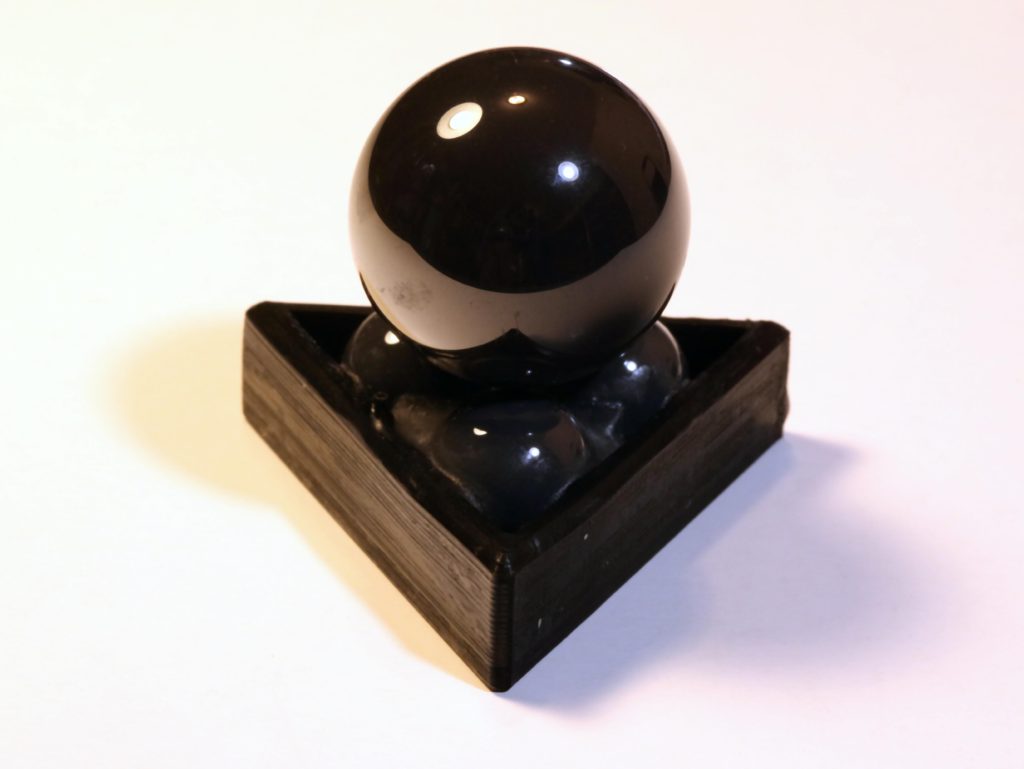 Random Ball Test Kit — US$95.00
Random Ball Test Kit — US$95.00
We are now able to offer 1″ diameter Grade 5 silicon nitride balls for measuring and removing instrumental errors associated with the SPPDI®. The 1″ balls are supported on a triangular base of three 0.5″ diameter silicon nitride balls. The three balls at the base are potted with paraffin wax in a 3D printed triangular mount. This 3-point mount allows precise repositioning of the 1″ ball as the ball is rotated randomly in yaw and pitch between successive interferograms.
After many interferograms are obtained, an average wavefront may be computed which can be subtracted from the wavefront of a test article in order to remove the instrumental errors associated with the SPPDI. Note that the 1″ diameter silicon nitride ball supplied with this kit requires a converging wavefront with a working or standoff distance of at least 15 mm. This can be achieved with a user-supplied long working distance microscope objective attached to our Collimating Lens Attachment.
The statistical procedure associated with the random ball test is described in a paper that may be viewed here. This paper provides experimental evidence that accurate interferometer calibration may be achieved with a Grade 5 silicon nitride sphere.
Purchase of the Random Ball Test Kit can be initiated by contacting Kerry Optical Systems, LLC. Please see our Payments page for further information.
Aluminized Concave Spherical Reference Mirrors — US$350.00 each
Kerry Optical Systems can provide very high accuracy (< λ/10 p-v at 633nm before coating over the clear aperture) 2″ diameter concave fused silica (Corning 7980 1-D) spherical mirrors with ROC (radii of curvature) of either 51.5 mm or 128.8 mm. The 128.8 mm radius mirror is more generally useful. Either of these mirrors are ideal for obtaining a correction wavefront for removing SPPDI instrumental errors. Calibration with the use of a Spherical Reference Mirror is much quicker than by use of the Random Ball Test.
Microscope Objectives — US75.00 each
NA (numerical aperture) 0.25 and NA 0.12 long-working-distance infinity-corrected metallurgical type microscope objectives can be attached to the Collimating Lens Attachment, and provide “fast” output beams which converge to a focus at long working distances suitable for performing SPPDI calibration testing via either the Random Ball Test or with a Concave Spherical Reference Mirror. After coming to focus, the output beams from these high NA objectives rapidly diverge, and allow for testing of very fast optical systems that produce spherical wavefronts (i.e., a concave spherical mirror, or an aspherical mirror in a double-pass autocollimation setup). For example, the NA 0.25 objective will allow for testing of f/1 concave spherical mirrors (at their f/2 center of curvature).
